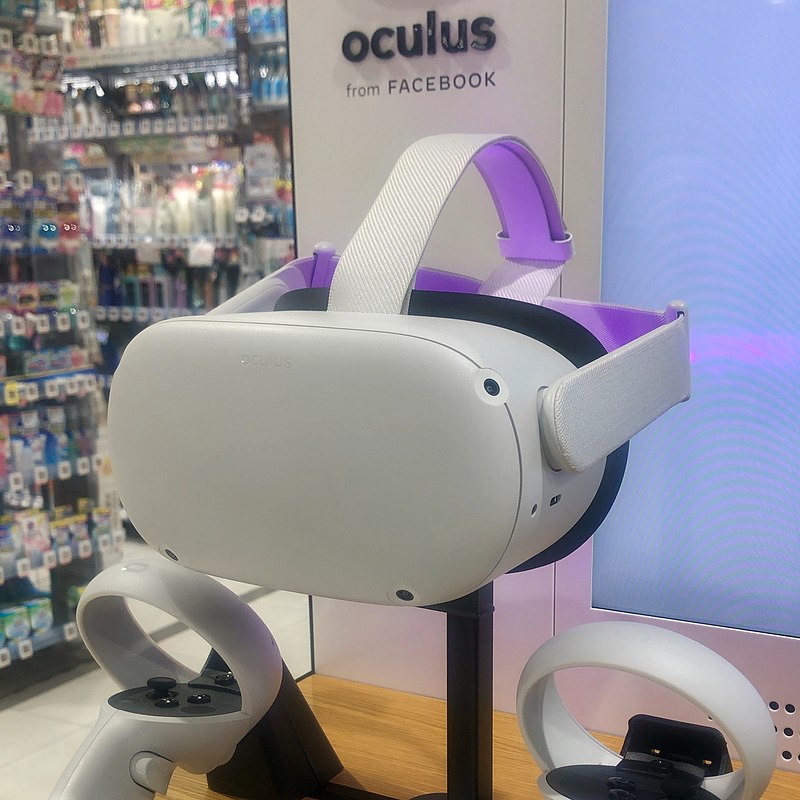
Facebook renamed itself to Meta in October 2021. The following year Facebook doubled down on metaverse being the future of the company by investing $13.7 Billion on metaverse R&D in 2022 alone. Fall of 2022 Meta saw 11,000 positions cut. In March of 2023, the company announced the elimination of an additional 10,000 positions. These workforce cuts are partly believed to be due to the bizarrely significant tech industry hiring trend in 2020 at the start of the global pandemic which ended up not being financially viable, otherwise, the cuts are believed to be due to the significant investment in ‘the metaverse’. Metaverse initiatives have burned massive amounts of capital without seeing a return… at least not yet. So… what is the metaverse?

History – Second Life and Media Representations
The metaverse is basically a digital representation of life and the world, more recently aided with VR headsets. There have been a few attempts at this in the past and in fiction that I’ve thought were interesting. The first, Second Life is an online world that went live in 2003 and, surprisingly is still live to this day. With Second Life you can attend a music concert, meet with friends, and socialize as well as do some shopping.
There’ve also been some fun 90s movies and TV shows that showed digital representations of life I thought were interesting sci-fi. Examples that leap to my mind are movies like Lawnmower Man and Hackers, as well as William Shatner’s TV show called TekWar. A more recent metaverse vision that was very popular is a book-turned-movie called Ready Player One – which looks at the social and cultural impacts the internet and video games have had and creates a future (albeit a bit dystopian) on what a future metaverse could look like as technology progresses. While not all of these are true representations of a full metaverse, they all feature digital representations of a person interacting with systems or people with the aid of computer systems.
What’s being attempted today?
Facebook/Meta is attempting to corner a potential ‘metaverse market’ by being the central place people go for their metaverse needs across all aspects of life (games, shopping, work/productivity, etc.). The company is fully invested and is hoping a few billion dollars invested today will come back to them as trillions a decade or two from now. The thought is similar to how Google dominated search by providing the best experience and drawing in a majority of internet users. They make a tremendous amount of money tangentially by ads (less tangentially as time moves forward as ads take over the first page of search results, though I digress), each ad individually pennies going to Google, though the massive volume of roughly 500 million users per day. Thinking about Google’s business model (something Facebook also does with their site traffic), pennies per ad, multiple ads per search, multiple searches per visit, and 500 million visits per day.
Meta feels the next generation of something that everyone will use in their life every day will be the metaverse, and they are ready, if not eager, to capitalize on it.

Is it successful?
In short – not yet. Meta is investing billions of dollars every quarter in what are deemed ‘experimental projects’ that have no clear path to profitability. Innovation and creative endeavors generally resist and don’t always have a clear path to profitability though are usually discouraged in capitalist economy-focused societies. The investments made by Meta will either pay off large, or the billions will have all been for nothing.
Meta (when it was simply Facebook) purchased Oculus in 2014, a VR hardware company to help bolster their consumer offerings. Meta took all VR offerings and renamed them under the heading of Reality Labs, leading with 2 offerings – a professional model ($1,500 Meta Quest Pro) and a consumer model ($300 Meta Quest). These offerings are ahead of their time at best (especially the Meta Quest Pro) – leading to the Meta Quest Pro being canceled due to poor sales in 2023. The Meta Quest 2 saw more success, namely the decent graphical fidelity and wireless setup (i.e. no need to tether to a computer) significantly easing convenience for a decent price.

What’s next?
As of this writing, outside looking in, it appears they’re continuing down the course of R&D investment for the foreseeable future. Facebook is currently the number 2 website on the internet with over 6 billion visits per month which generates significant ad revenue for the company. Facebook/Meta has stated they’re committed to developing the metaverse by investing at least 20% of their expenses in metaverse-related development. It should be interesting to follow in the coming months to a handful of years as to what marvel will be released or what pivot they may make.